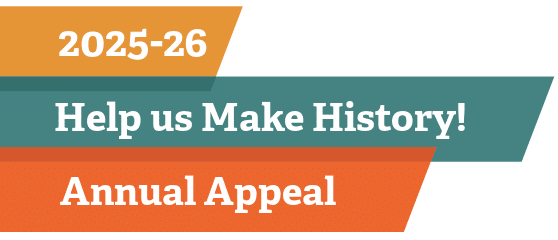Indigenous Oral Histories
Oral histories transmit the cultural memories and teachings of Native communities in their own words, and play a vital role in many Indigenous cultures. These stories are crucial for passing information – history, cultural and religious teachings, and other communal knowledge – down through the generations. In some communities, the responsibility for maintaining and passing down oral traditions might lie with a certain respected individual, such as Elders or tribal leaders. Likewise, some stories are only for select audience, or should only be told at certain times of year.
Learn More about Oral Traditions
The Canadian Encyclopedia has an introduction to the role oral traditions play in Indigenous cultures, along with an education guide and a collection of oral histories from Canadian First Nations.
Columbia University offers a Master of Arts in Oral History. Visit their website to learn more about oral history, Indigenous oral traditions, and decolonization.
Indigenous peoples have the right to maintain, control, protect and develop their cultural heritage, traditional knowledge and traditional cultural expressions, as well as the manifestations of their sciences, technologies and cultures, including human and genetic resources, seeds, medicines, knowledge of the properties of fauna and flora, oral traditions, literatures, designs, sports and traditional games and visual and performing arts. They also have the right to maintain, control, protect and develop their intellectual property over such cultural heritage, traditional knowledge, and traditional cultural expressions.
Article 31 of the United Nations Declaration on the Rights of Indigenous Peoples, 2007
Oral History Collections
The Cultural Conservancy is a Native-led nonprofit that works with Indigenous communities to empower them through the direct application of traditional knowledge and practices on their ancestral lands. Listen to their collection of oral histories of Native food revitalization.
StoryCorps is an organization that collects and preserves stories of human connection for future generations. You can view the StoryCorps collection of conversations with Indigenous people from all over the country here.
Ongoing Challenges
Indigenous oral traditions have been threatened in many ways by settler colonialism. Forced removal from ancestral lands and U.S. Indian boarding school policies aimed at assimilating Native peoples made the passing of oral traditions from one generation to the next difficult. Western academic and legal traditions have erroneously asserted that oral traditions are less reliable than the written word, leading to significant impediments to Indigenous land claims. In addition to the two articles below, you can find many other books and articles about these challenges.
“‘[This] I Know from My Grandfather’: The Battle for Admissibility of Indigenous Oral History as Proof of Tribal Land Claims” by Hope M. Babcock of the Georgetown University Law Center examines the substantial obstacles Indigenous land claimants face in courts that block the use of oral traditions to establish legal claims.
“The Yellowman Tapes, 1966-1997” documents the experience of one folklorist, Barre Toelken, with the oral traditions of the Navajo nation, as told by Navajo Elder Hugh Yellowman. The article chronicles Toelken’s close relationship with the Yellowman family, as well as his ultimate decision to respect the family’s wishes and destroy the recordings he had made of Hugh Yellowman’s stories.

